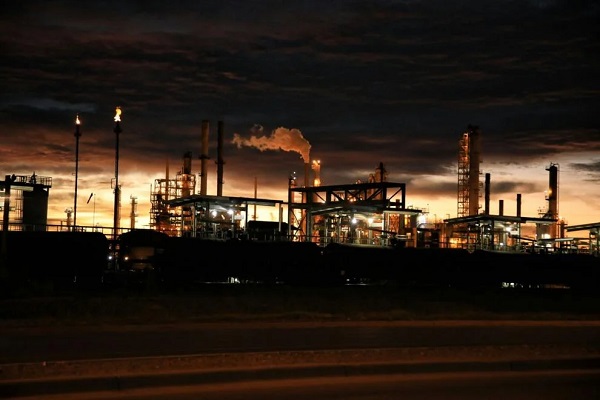Short on the heels of another major refinery closure, Valero signaled it is considering closing its two California refineries that produce over 14% of the state’s gasoline. Refinery closures already have the state importing 8% of its gasoline supply, which means the state could soon have to significantly increase its imports of refined products such as gasoline, on top of its existing reliance on the Middle East and South America for the majority of its crude oil.
Valero announced its profit is down significantly due to very low margins from its refinery business, prompting a question during its earning call about its costly California refineries.
Valero CEO Lane Riggs responded the company has already “minimized strategic [capital expenditures]” in the state and “California is increasing its regulatory pressure on the industry, so we’re really considering everything — all options are on the table.”
While Riggs did not explicitly state that the refineries, which represent over 14% of the state’s remaining refinery capacity, could be shut down, California legislators were quick to ring the alarm bell and tie the potential closures to new refinery regulation powers being granted to the state in a special legislative session called by the governor.
“When California Governor Gavin Newsom said in 2021 he didn’t see a future for oil in CA, I didn’t know 2024 would be the year he ended it at lightning speed,” said State Assembly member Joe Patterson, R-Rocklin, on X. “Today, another refiner said “all options are on table” with refineries here. We can thank Newsom’s legislation.”
Just last week, Phillips 66 announced it is closing its massive Los Angeles refinery complex, which alone has 8% of the state’s refining capacity, right after the new legislation was passed.
New laws making it more difficult to drill for oil in California have brought production levels to half of what they were in 2008. Then, California produced 249 million barrels of oil, meeting 38% of state needs, with 13.5% imported from Alaska and the remaining 48.5% from foreign countries. In 2023, California produced just 124 million barrels of oil, meeting 23.4% of state needs, while importing 15.9% from Alaska and 61% from abroad. California’s foreign oil mostly comes from Iraq and Saudi Arabia in the Middle East and Ecuador and Columbia in Latin America.
Losing a quarter of the state’s refining capacity would necessitate replacement with products refined abroad, which would end up being a lot more expensive than shipping in crude oil to be refined in California, which in turn is more expensive than producing oil in-state and refining it.
Imports are also more subject to price shocks than domestic refining and production due to higher variance in global market conditions, which could be a concern in the future — a widespread war in the Middle East, for example, would already significantly impact California oil supplies today.
Should California adopt more strict Low Carbon Fuel Standard requirements in November, which could include having more strict requirements on refineries and raising their costs, even more refineries may shut down rather than continue operating in California. Under the Low Carbon Fuel Standard program, refiners must either produce low carbon fuels, or purchase credits; should the new standards pass in, California estimates they would add another 47 cents to the cost of each gallon of gasoline and 59 cents in 2025 to each gallon of diesel.
















